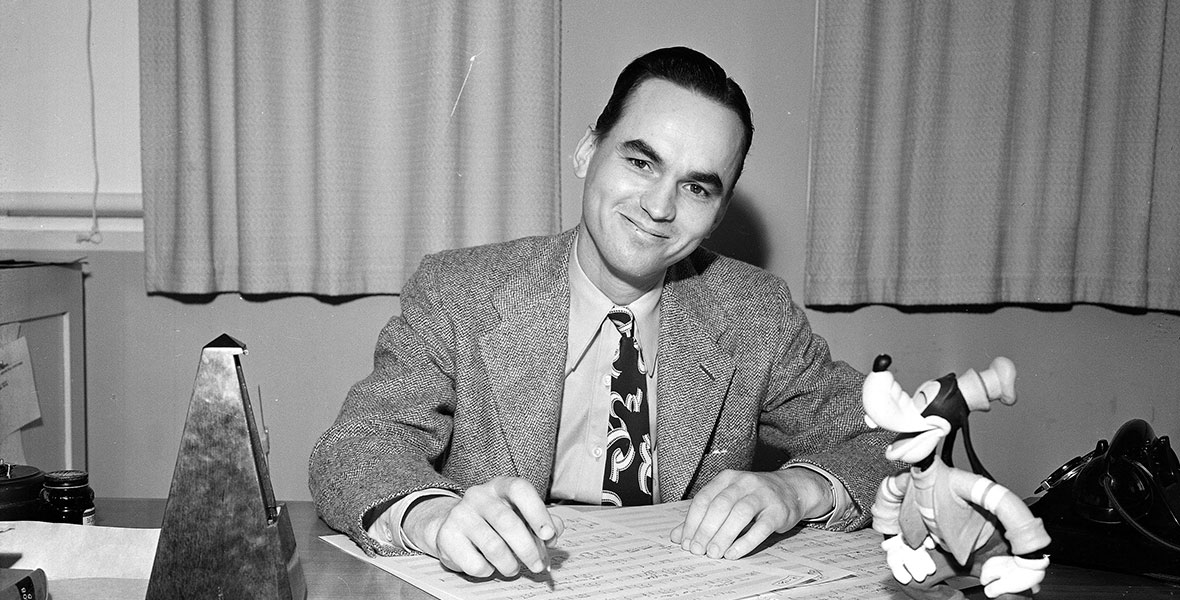When composer Paul Smith arrived at The Walt Disney Studios in 1934, he was “fresh out of university and full of musical ideas,” according to animators Frank Thomas and Ollie Johnston in their book Disney Animation: The Illusion of Life.
The musical genius, who wrote scores for nearly 70 animated shorts and received an Oscar® with Leigh Harline and Ned Washington for the music in Pinocchio, later wrote background music for nearly every Disney True-Life Adventure, applying techniques he had learned while writing music for cartoons. As Thomas and Johnston recalled, “Paul’s adaptation of cartoon techniques in the scores for the True-Life Adventures added immeasurably to that series of live-action films.”
Born to a musical family in Calumet, Michigan, on October 30, 1906, Paul was raised in Caldwell, Idaho, where his father taught music at the College of Idaho.
Paul’s father, Joseph, began teaching his prodigy son to play a variety of musical instruments beginning with the piano at age four, followed by the violin at age seven.
The youngster also played the trumpet and viola, and, by age 12, played the bass drum for the town band. Gifted with perfect pitch, Paul’s experience helped him gain a more practical knowledge of the orchestra and he went on to conduct in high school.
In 1925, Paul enrolled in the Bush Conservatory of Music in Chicago, where he received the Juilliard Scholarship in theory. After graduation, he went on to teach brass instruments at Elmhurst College and at York High School for two years. In 1932, he moved to Los Angeles to attend UCLA, where he majored in English and wrote four musical comedies.
From UCLA, he joined The Walt Disney Studios as a pioneer in motion picture music. Versatile, prolific, and, like Walt, always bent towards exploration, Paul readily pushed the envelope in musical composition. As a result, he won eight Oscar nominations for such classic films as Snow White and the Seven Dwarfs, Cinderella, Song of the South, Saludos Amigos, and The Three Caballeros.
During the 1950s, he wrote symphonic scores for most of the critically acclaimed True-Life Adventures films, including Beaver Valley, Nature’s Half Acre, The Olympic Elk, The Living Desert, The Vanishing Prairie, The African Lion, Secrets of Life, and Perri. He also recorded an album called True-Life Adventures, which was a compilation of his scores.
After three successful decades with The Walt Disney Studios, Paul retired in 1962. He passed away on January 25, 1985, in Glendale, California.



